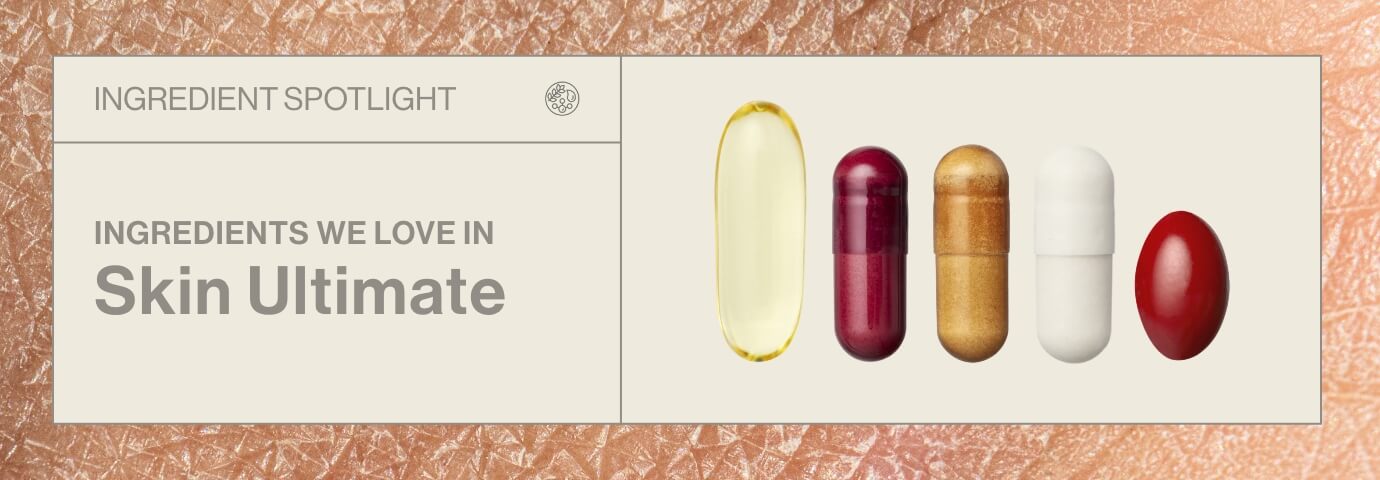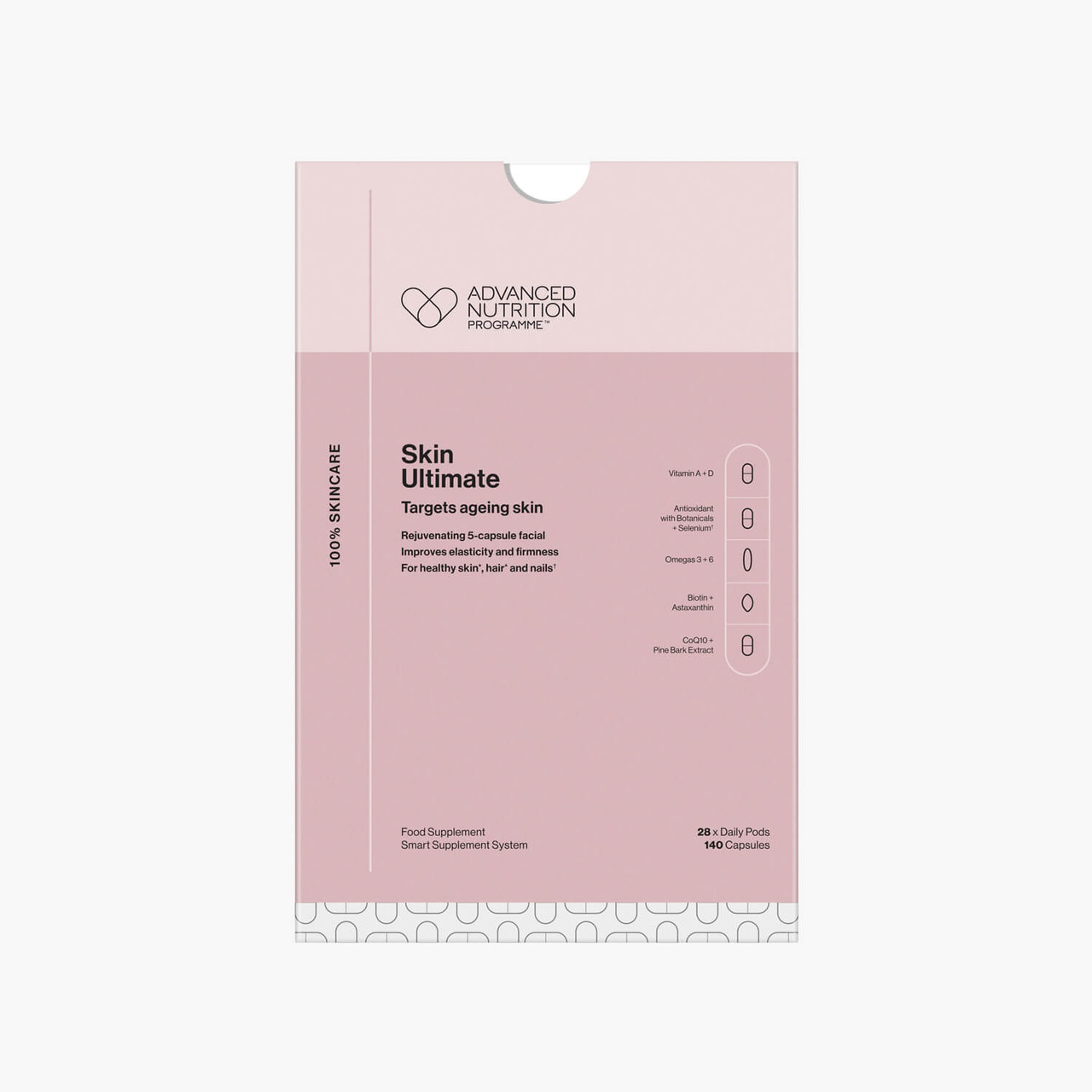The ingredients we love in Skin Ultimate
The ingredients we love in Skin Ultimate

Skin Ultimate is our award-winning, scientifically proven smart supplement system helping to reduce the signs of premature ageing with a synergy of nutrients. This week, we’re taking this opportunity to spotlight three of our favourite ingredients that are seamlessly blended into this pioneering formula for transformative skin results.

Pine Bark Extract
French maritime pine bark is a fascinating anti-ageing ingredient with many antioxidant properties. It is made from the bark of maritime pine trees – many of which are harvested along the Mediterranean coast. The scientific name is Pinus pinaster. The bark of maritime pines is thick and grows in different shades of brown, orange, and red. Our Pine bark ingredient is extracted without using any harsh chemicals and only by washing and soaking in water.
Anti-ageing benefits
An important skin benefit of pine bark extract is its anti-ageing effects. A 12-week study was conducted with 112 women under 60 years old with mild to moderate skin discolouration. The participants took 100 mg of pine bark extract supplementation or 40g of pine bark extract a day. The results showed both groups experienced a significant decrease in photoaging and pigmentation spots.
In another study, 20 women aged between 55-68 years took pine bark extract for 12 weeks. The results showed an improvement of 25% in skin elasticity, 8% in skin hydration and 6% in skin smoothness1.
CoQ10
CoQ10, also known as Coenzyme Q10 is an essential component needed by the mitochondria of our cells in order to produce energy. Mitochondria are often referred to as ‘powerhouses of the cell’ and function as cellular batteries. Energy is key for cells to repair and regenerate effectively.
The mitochondria produce energy and protect cells from oxidative damage and bacteria or viruses1. Our bodies produce CoQ10 naturally, but as we age, the CoQ10 levels decline. Making it a valuable ingredient for overall skin health and wellbeing.
Research shows that CoQ10 in topical creams reduces wrinkles, but studies show that when taken orally, CoQ10 is an effective anti-ageing ingredient. One trial showed significantly reduced wrinkles and improved skin smoothness after a 12-week course of CoQ10 supplements3.
Another impressive benefit is that it may help with exercise performance by decreasing oxidative stress in the cells and helping with energy production and reducing fatigue3.
Furthermore, research has shown that CoQ10 can protect brain cells from oxidative stress3. Highlighting the importance of taking this for overall well-being too.
Astaxanthin
Astaxanthin, a potent antioxidant derived from microalgae and is often associated with the vibrant red colour of salmon and the pink of flamingos, boasts a myriad of benefits for the skin. Astaxanthin is a fat-soluble antioxidant, meaning it dissolves in fat but not in water. This characteristic allows it to be incorporated into cell membranes, which are primarily composed of fats. The fat-solubility of astaxanthin makes it effective in protecting cell membranes from oxidative damage.
Research studies on the skin have shown that astaxanthin has enhanced overall skin health by improving elasticity, reducing wrinkles and supporting photoaged skin4.
In our research study, we invited 30 women, aged 40 to 59 years to test our Skin Ultimate product for 12 weeks. Our participants were from a range of ethnic groups with signs of ageing such as fine lines, wrinkles, thinning and dull skin. We witnessed an improvement of 19% in elasticity around the eye after only 4 weeks of supplement use; after 12 weeks, an improvement of 23% in elasticity was observed.
Get ready to elevate your skincare regime by including Skin Ultimate so that you can experience these transformative skin results yourself.
Sources:
1 Chowdhury, W. K., et al. (2017). Pycnogenol: A Miracle Component in Reducing Ageing and Skin Disorders. Journal of Clinical & Experimental Dermatology Research, 08(03).
2 Garrido-Maraver J, et al. Coenzyme q10 therapy. Mol Syndromol. 2014 Jul;5(3-4):187-97.
3 Kones R. Parkinson's disease: mitochondrial molecular pathology, inflammation, statins, and therapeutic neuroprotective nutrition. Nutr Clin Pract. 2010 Aug;25(4):371-89.
4 Davinelli, S., Nielsen, M. E., & Scapagnini, G. (2018). Astaxanthin in skin health, repair, and disease: A comprehensive review. In Nutrients (Vol. 10, Issue 4). MDPI AG.
